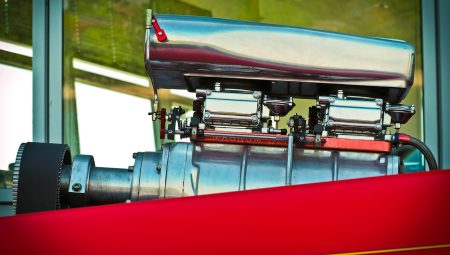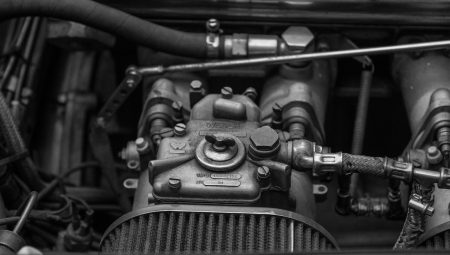Engine mounts play a critical role in ensuring your vehicle runs smoothly. They secure the engine to the frame, absorbing vibrations and impacts that can affect your driving experience. But how do you know when it’s time to replace them? If you start feeling excessive vibrations or hear strange noises, your engine mounts might be waving a red flag. Ignoring these signs can lead to serious issues, including engine misalignment and increased wear on other components. So, when in doubt, don’t hesitate to investigate!
Understanding Engine Mounts
Engine mounts are essential components in your vehicle that play a crucial role in securing the engine to the frame. They are designed to absorb vibrations and impacts, ensuring a smooth and stable ride. Think of them as the shock absorbers for your engine, helping to dampen the noise and vibrations that can disrupt your driving experience. Without proper functioning mounts, your vehicle’s performance can suffer significantly.
These mounts not only hold the engine in place but also contribute to the overall stability and safety of your vehicle. When they wear out, you might notice a decline in handling and an increase in noise levels. It’s important to understand that engine mounts are made from various materials, including rubber and metal, each with its own set of characteristics. The choice of material can affect the longevity and performance of the mounts.
In summary, recognizing the importance of engine mounts is vital for maintaining your vehicle’s health. Ignoring their condition can lead to a cascade of issues that could compromise safety and performance. So, keep an eye out for signs of wear and be proactive about your vehicle’s maintenance!
Signs of Worn Engine Mounts
Recognizing the is crucial for maintaining your vehicle’s performance and safety. Have you ever felt an unexpected jolt while driving? That could be a sign! One of the most noticeable symptoms is excessive vibration in the cabin, which can turn a smooth ride into a bumpy experience. Additionally, if you notice the engine shifting during acceleration or braking, it’s a clear indication of failing mounts. These issues not only affect your driving comfort but can also lead to serious safety risks.
Don’t ignore unusual noises, either! Sounds like clunks or bangs when you hit a bump can indicate that your engine is not securely mounted. Over time, neglecting these signs can lead to more severe problems, such as engine misalignment or increased wear on other components. Staying vigilant about these symptoms can save you from costly repairs down the road.
Excessive Vibration
Have you ever felt your car shaking like a leaf in a storm while driving? can be a telltale sign that your engine mounts are wearing out. These mounts are designed to absorb shocks and vibrations, keeping your ride smooth and comfortable. When they fail, the engine can transmit those vibrations directly to the cabin, making your driving experience less enjoyable. Imagine trying to sip coffee while riding a roller coaster—it’s that jarring!
Not only does this discomfort affect your driving pleasure, but it can also lead to more severe issues. Over time, excessive vibrations can cause other components to wear down faster, leading to costly repairs. So, if you’re experiencing a bumpy ride, it’s crucial to address the issue promptly. Ignoring it could turn your vehicle into a ticking time bomb of mechanical problems!
To help you understand the impact, here’s a quick overview of the effects of excessive vibration:
| Effect | Description |
|---|---|
| Increased Wear | Components like the transmission and suspension can wear out faster due to constant shaking. |
| Driving Comfort | A bumpy ride can make long journeys unbearable and stressful. |
| Safety Risks | Excessive vibration can lead to loss of control, especially during sudden maneuvers. |
Being proactive about your engine mounts can save you from a lot of headaches down the road. So, keep an ear out for those vibrations and take action before it’s too late!
Engine Movement
Have you ever felt your engine lurch or shift when you hit the gas or slam on the brakes? That unsettling motion is a telltale sign of worn engine mounts. These mounts are designed to keep your engine securely in place, but when they start to fail, the consequences can be serious. Not only does engine movement affect your vehicle’s stability, but it can also lead to increased wear on other components, creating a domino effect of issues.
Imagine driving a car where the engine feels like it’s dancing under the hood. This can lead to misalignment of the drivetrain, causing unnecessary strain on your transmission and other vital parts. If you notice a significant shift in the engine during acceleration, it’s crucial to address the problem before it escalates. Regular maintenance checks can help catch these issues early, ensuring your vehicle remains safe and reliable.
In summary, engine movement is not just a minor annoyance; it’s a signal that your engine mounts need attention. Ignoring this can result in costly repairs and compromise your driving experience. So, next time you feel that engine wobble, remember it’s your car’s way of saying, “Help me out here!”
Consequences of Ignoring Engine Mount Issues
Ignoring engine mount issues can lead to a cascade of problems that affect both the performance and safety of your vehicle. When engine mounts wear out, they fail to absorb vibrations effectively, which can result in excessive shaking of the vehicle. This not only compromises your driving comfort but can also lead to serious mechanical issues. For instance, the engine may become misaligned, causing strain on other components such as the transmission and exhaust system.
Additionally, the longer you wait to address these issues, the more expensive the repairs can become. Here are some potential consequences:
- Increased Wear: Other parts of the vehicle can suffer from accelerated wear due to misalignment.
- Safety Risks: A shifting engine can lead to unpredictable handling, increasing the risk of accidents.
- Costly Repairs: What starts as a simple mount replacement can escalate into a major repair job if not addressed promptly.
In summary, neglecting worn engine mounts is like ignoring a small crack in your foundation; it may seem minor at first, but it can lead to a major collapse if not fixed in time. Don’t let your vehicle’s health deteriorate—act before it’s too late!
Replacement Procedures
Replacing engine mounts is not just a task; it’s an essential procedure that can significantly enhance your vehicle’s performance and safety. Before diving in, ensure you have the right tools, such as a socket set, torque wrench, and jack stands. Safety first! Always wear protective gear and work in a well-ventilated area. The process typically involves lifting the engine slightly, removing the old mounts, and installing new ones with precision.
Here’s a brief overview of the steps involved:
- Start by disconnecting the battery to prevent electrical issues.
- Lift the engine using a jack, ensuring it’s secure.
- Remove the old mounts, taking note of their positioning.
- Install the new mounts and tighten them according to the manufacturer’s specifications.
- Lower the engine and reconnect the battery.
Remember, if you’re unsure at any step, it’s wise to consult a professional. A small mistake can lead to larger issues down the road. So, take your time and ensure everything is done right!
Tools Required
When it comes to replacing engine mounts, having the right tools is absolutely essential. Without them, you might find yourself in a frustrating situation, wondering why you started this project in the first place! To kick off, you’ll need a good set of wrenches and sockets to tackle those stubborn bolts. A jack and jack stands are crucial for safely lifting your vehicle, while a torque wrench ensures you tighten everything to the right specifications.
Additionally, some other handy tools include:
- Ratchet straps – to secure the engine while you work.
- Pry bar – to help with stubborn mounts.
- Safety goggles – because safety first!
Having these tools on hand will not only make the replacement process smoother but also enhance your overall safety. Remember, a well-prepared mechanic is a happy mechanic!
Step-by-Step Guide
Replacing engine mounts may sound daunting, but with the right approach, it can be a manageable task. First, gather your tools: a socket set, jack stands, and a torque wrench are essential. Start by safely lifting your vehicle and securing it on jack stands. This is crucial for your safety!
Next, locate the engine mounts, usually found at the front and rear of the engine. Carefully remove any components blocking access to the mounts. Once you have clear visibility, unbolt the old mounts using your socket set. Be cautious, as the engine may shift slightly during this process.
After removing the old mounts, compare them with the new ones to ensure compatibility. Install the new mounts by bolting them in place, making sure to follow the manufacturer’s torque specifications. Finally, double-check all connections, lower the vehicle, and take it for a test drive to ensure everything feels right!
Remember, if you’re ever in doubt, it’s always wise to consult a professional. Safety first!
Choosing the Right Engine Mounts
When it comes to , you want to ensure you’re making a decision that enhances your vehicle’s performance and longevity. Think of engine mounts as the unsung heroes of your car’s stability; they hold everything together. But how do you pick the best ones? First, consider the material. Rubber mounts are common, but polyurethane offers better durability and performance under stress. Next, check for compatibility with your vehicle’s make and model. A mount that fits like a glove will ensure optimal function. Lastly, don’t overlook the brand reputation. Renowned brands often provide higher quality and reliability, which translates to peace of mind when you’re hitting the road.
Ultimately, investing time in selecting the right engine mounts can save you from headaches down the line. Remember, your engine deserves the best support it can get!
Professional vs. DIY Replacement
When it comes to replacing engine mounts, the choice between professional service and DIY replacement can be a tough one. On one hand, hiring a professional means you get expertise and precision, ensuring that the job is done right the first time. However, it comes with a price tag that can be a bit steep. On the other hand, if you’re a handy person, tackling this project yourself can save you money and give you a sense of accomplishment. But, are you ready to face potential challenges?
Consider these factors before making your decision:
- Skill Level: Do you have the mechanical know-how to handle the task?
- Tools Availability: Do you have access to the necessary tools?
- Time Commitment: Can you dedicate enough time to complete the job correctly?
Ultimately, whether you choose to go with a professional or take the DIY route, ensuring that your engine mounts are replaced in a timely manner is crucial for your vehicle’s performance and safety. Weigh the pros and cons carefully, and remember, it’s better to ask for help than to risk making a costly mistake!





